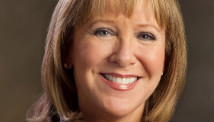CHICAGO (Reuters) – The year 2012 was the warmest on record for the contiguous United States, beating the previous record by a full degree in temperature, a government climate agency said on Tuesday.
Scientists at the National Oceanic and Atmospheric Administration said the average temperature in 2012 in the contiguous United States was 55.3 degrees Fahrenheit (12.94 degrees Celsius), 3.2 degrees above the average recorded during the 20th century and 1.0 degree above 1998, until now the hottest on record. The contiguous United States excludes Alaska and Hawaii.
The agency also confirmed what many farmers in the nation’s midsection and many residents of the western part of the country already knew: 2012 was drier than average.
The year was 15th driest year on record, it said. At the peak of the heat in July 2012, 61 percent of the country was in drought, NOAA said, including the nation’s breadbasket of the Midwest, as well as the Southwest and Mountain West, where wildfires charred 9.2 million acres.
The agency’s U.S. Climate Extremes Index, which tracks volatility in temperature and precipitation as well as the number of tropical cyclones making landfall, was twice as active as normal in 2012, the agency said. Only 1998 had more extreme weather, NOAA said.
There were 11 weather-related disasters in the continental United States during 2012, with losses topping $ 1 billion, including Hurricanes Sandy and Isaac and a series of tornadoes in the Great Plains, Texas and the Ohio Valley, it said.
Among the other findings released on Tuesday:
* Every state in the contiguous U.S. experienced above-average annual temperatures in 2012. Nineteen had a record warm year and an additional 26 had one of their 10 warmest.
* Spring started off with the warmest March on record, followed by the fourth-warmest April and the second-warmest May. The season’s temperature was 5.2 degrees Fahrenheit above average, making it the warmest spring on record, surpassing the previous record by 2.0 degrees, the agency said.
* The above-average temperatures during the spring continued into summer. The heat peaked in July with an average temperature of 76.9 degrees Fahrenheit (24.94 degrees Celsius), 3.6 degrees above average, making it the hottest month ever observed in the continental United States.
* An estimated 99.1 million people – nearly one-third of the nation’s population – experienced 10 or more days during the summer when temperatures exceeded 100 degrees Fahrenheit, the agency said.
* There were fewer-than-average tornadoes in 2012. Although the season got off to a busy start with large outbreaks in March and April, May and June – typically the most active months of the year – there were fewer than half the normal number of tornados. The final tornado count for 2012 was less than 1,000, NOAA said, the smallest number since 2002.
* While Hawaii and Alaska were outside the area where the hottest weather hit last year, NOAA said those two states had unusual weather of their own during the year. Alaska was cooler and slightly wetter than average during 2012, the agency said. In Hawaii, drought conditions spread during the year, with 63.3 percent of the state experiencing drought by the end of the year.
(Reporting by James B. Kelleher; Editing by Greg McCune and Tim Dobbyn)
Green News Headlines – Yahoo! News
Title Post: 2012 was hottest year on record in U.S., climate agency says
Url Post: http://www.news.fluser.com/2012-was-hottest-year-on-record-in-u-s-climate-agency-says/
Link To Post : 2012 was hottest year on record in U.S., climate agency says
Rating:
100%
based on 99998 ratings.
5 user reviews.
Author:
Thanks for visiting the blog, If any criticism and suggestions please leave a comment


